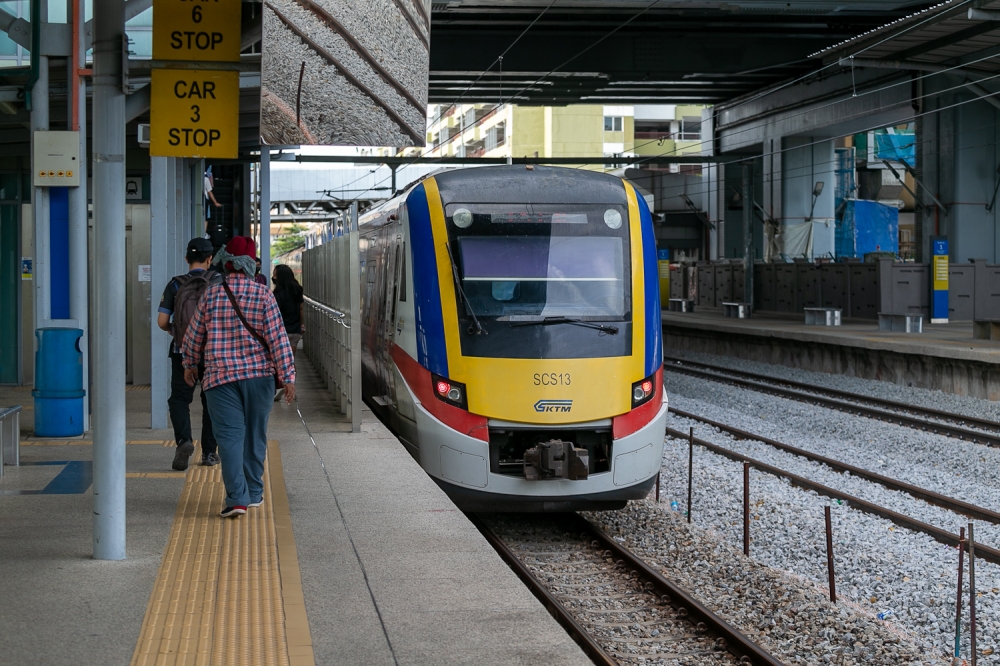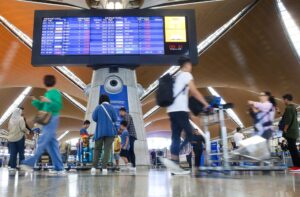KUALA LUMPUR, Sept 1 — Malaysia’s national rail operator Keretapi Tanah Melayu Berhad (KTMB) is looking to integrate its network with neighbouring countries, including Thailand, Laos and China, as part of efforts to boost revenue and reduce its reliance on government funding.
Newly appointed acting chief executive officer Ahmad Nizam Mohamed Amin told Singapore’s CNA his immediate priority is to revive cross-border routes, including the once-popular scenic service between Butterworth in Penang and Bangkok which was suspended in 2016.
In his first media interview since taking over the post earlier this month, Ahmad Nizam, 54, stressed that greater regional integration would allow KTMB to tap into new markets and strengthen its freight services.
One of his key focus areas is restarting the Asean Express, a freight service launched in 2024 that was meant to connect Malaysia with Thailand, Laos and China.
The line has since stalled due to customs obstacles at certain borders.
“This is one of the businesses that’s not yet been tapped to the maximum. If we can overcome these obstacles, we can resume freight between Kuala Lumpur to Chongqing, China and beyond, even as far as Europe,” Ahmad Nizam told CNA.
He urged the Transport Ministry to negotiate with regional governments to ease customs restrictions, noting that current regulations such as manual inspections and bans on agricultural goods have slowed interest in the project.
KTMB had touted the Asean Express as a cheaper and faster alternative to sea freight, with the first shipment from Selangor to Chongqing in 2024 taking less than 14 days compared to three weeks by sea.
Ahmad Nizam said on the passenger side, KTMB’s electric train service (ETS) will soon connect Johor Bahru to Padang Besar in Perlis, allowing commuters to link up with Thailand’s network for travel to Hat Yai or Bangkok.
Once fully completed, the ETS will cut travel time between Johor Bahru and Kuala Lumpur to about 3.5 hours — a journey comparable to driving but without the hassle of traffic congestion.
Ahmad Nizam confirmed that KTMB is working with Thailand’s State Railway to restart the Penang-Bangkok service this year, subject to agreements between both operators.
According to the report, the plan includes advancing double-tracking projects and developing integrated ticket systems to improve travel speed and passenger experience.
Rail analyst Nor Aziati Abdul Hamid of Universiti Tun Hussein Onn said KTMB’s push for regional integration is a “shrewd move” that could boost Malaysia’s trade links with China and beyond, while also opening new revenue streams for the operator.
She noted that the strategy fits into the Pan-Asia Railway Network, a 2006 agreement to link Kunming in China with Singapore through Southeast Asia.
KTMB, however, continues to face financial struggles.
Transport Minister Anthony Loke recently said the operator has yet to achieve profitability, with reports noting liabilities exceeding RM2 billion. Ahmad Nizam said he intends to present a turnaround plan to KTM’Bs board in September.






